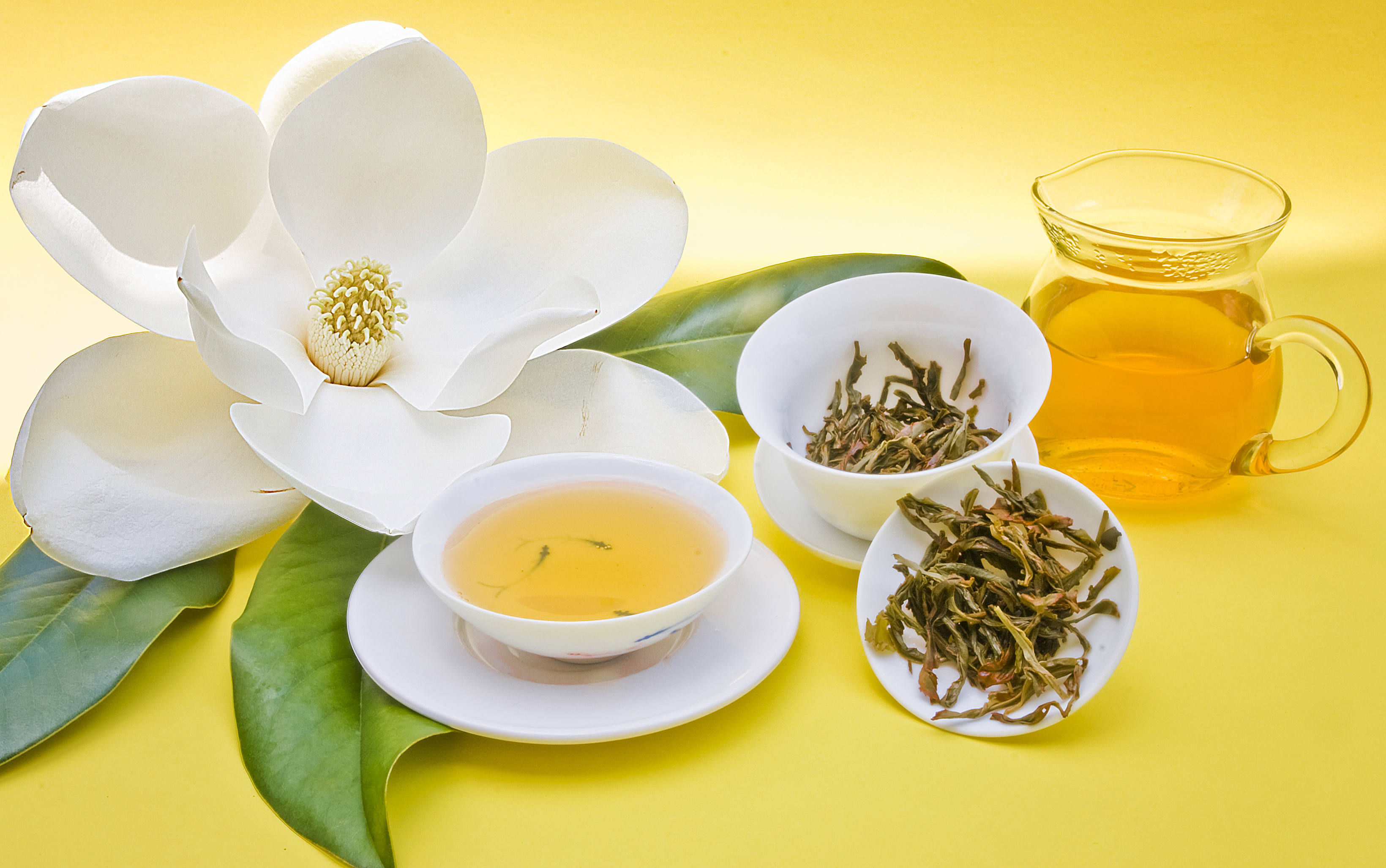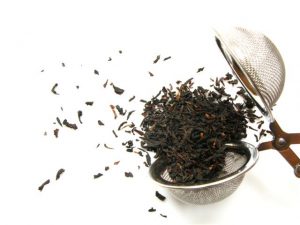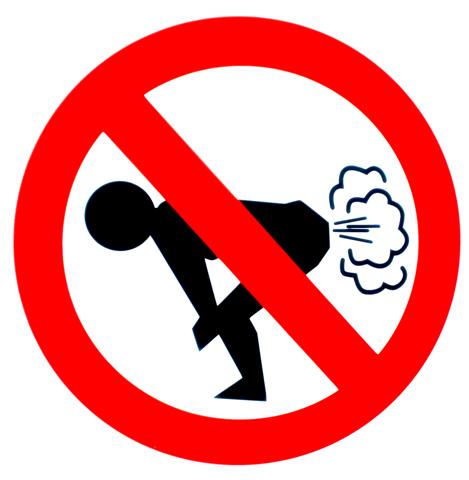
A nice, hot cup of tea can wake you in the morning or soothe jangled nerves  before bed. There are many varieties of tea on the market. From green tea to chamomile, you have your pick. But what’s the difference between “regular tea” and herbal tea? Do they have any health benefits? Are there any side effects to drinking tea? This article will answer these questions and more.
before bed. There are many varieties of tea on the market. From green tea to chamomile, you have your pick. But what’s the difference between “regular tea” and herbal tea? Do they have any health benefits? Are there any side effects to drinking tea? This article will answer these questions and more.
The Difference between “Regular Tea” and Herbal Tea
Up until this point you may never have realized that there is a distinct difference between regular tea and herbal tea. However, the four basic teas customarily consumed by tea-lovers are black tea, green tea, white tea and oolong tea. These flavorful teas come from the tea bush known as Camellia sinensis. Any tea made from this bush is considered a “true tea”.
Herbal teas, also called tisane, are not made from this tea bush but rather an infusion of drives flowers, spices, herbs, leaves, seeds, bark, fruits and plant roots. In essence, any tea not made from the Camellia sinensis is considered an herbal tea.
Health Benefits of True Tea
True tea is made from the tea bush Camellia sinensis and comes in four common choices: Green, Black, White and Oolong. There are many health benefits to this type of tea. Let’s take a closer look at each tea and its unique health benefits.
Green Tea
Green tea is loaded with the powerful antioxidant, EGCg (Epigallocatechin Gallate), which has been reported to both treat and prevent breast, stomach and skin cancers. The caffeine content in green tea may also increase mental alertness and aid in weight loss efforts. Other health benefits of green tea include lower cholesterol levels and protection from the damaging effects of the sun’s UV rays.
Black Tea
Black tea also contains a number of antioxidants, which help the body fight free radicals. Free radicals are chemical by-products that can cause premature aging, autoimmune disease, mental health problems and more. A study done by the Boston University School of Medicine concluded that black tea can improve the arterial health of those who suffer from heart disease.
White Tea
White tea is the least processed of all true teas. With white tea, the leaves are picked before the leaves open. Studies show white tea can help reduce the inflammation associated with arthritis and enlarged prostate. The secret healing ingredients are called catechins, phenol antioxidants that help the body release toxins and heal itself.
Oolong Tea
The polyphenols in oolong tea improve metabolism and can help aid in your weight-loss efforts. Oolong tea has also been reported to reduce cholesterol, treat skin disorders such as eczema and psoriasis and lower blood sugar in those with type-II diabetes.
Types of Herbal Tea
Since there are so many types of herbal tea, below is a list of the 10 most common types of herbal teas and their reported health benefits:
1. Cinnamon
Cinnamon tea is warm, fragrant and delightful on a chilly fall evening. For those who suffer chronic inflammation due to autoimmune disease, cinnamon tea can help. Cinnamon tea also improves digestion, has a regulatory effect on blood sugar and an anti-clotting effect on the blood.
2. Ginger
Those with chronic stomach problems may find comfort in a cup of ginger tea. Ginger is a powerful digestive aid and helps control nausea and vomiting. Ginger tea can even be sipped by pregnant woman to control morning sickness!
3. Chamomile
For a relaxing night’s sleep, try chamomile tea. Chamomile tea can also ease menstrual cramps and high blood pressure. This herbal tea has also been reported to ease and prevent hemorrhoids.
4. Lemon Peel
For improved immune system function, reach for lemon peel tea. Loaded with vitamin C, this herbal tea also helps prevent cancer, lowers cholesterol and helps improve prostate health in men.
5. Echinacea
Echinacea works to improve immune system function by stimulating white blood cells to attack the bacteria that lead to illness and infection. This herbal tea can also treat and prevent frequent urinary tract infections.
6. Ginseng
For those with chronic fatigue, ginseng tea helps stimulate the immune system and fight tiredness. Ginseng also helps improve digestion and increases mental clarity and alertness.
7. Nettle
Got allergies? Then reach for nettle tea. Though nettle contains a high amount of leukotrienes and histamine, it actually has an antihistamine effect on your system. Drinking nettle tea treats asthma and eczema, as well as respiratory and urinary problems. Nettle also treats anemia because of its high iron content.
8. Mint
Mint tea is a good natural way to calm troubled digestion. Mint helps improve heartburn and indigestion by relaxing the muscles of the stomach and intestine. Mint tea can help alleviate upper respiratory congestion. Swishing a little warm mint tea around in your mouth can also alleviate bad breath.
9. Rooibos (Red Bush Tea)
Pronounced “Roy Boss”, this rich-tasting African tea is naturally caffeine-free. Rooibos tea is anti-inflammatory and anti-carcinogenic and may help ease insomnia and inflammatory skin conditions. Rooibos tea also contains a high amount of potassium, which can be effective in treating restless legs syndrome.
10. Yarrow
Yarrow tea acts as a mild sedative and can help improve digestion and appetite. Yarrow is also known to reduce cold symptoms.
How to Prepare Herbal Tea
Though you can purchase a wide variety of herbal teas at any grocery store, preparing herbal tea at home increases the health benefits you receive from it. The two most popular methods of preparing tea at home are the infusion method and the decoction method. Let’s take a look at both.
The Infusion Method
The process of mixing water and herbal products together to produce tea is called infusion. The easiest way to prepare herbal tea using the infusion method is to boil some water, drop the herbs into the water and allow it to steep for five minutes, then drink. The leaves can be consumed at the same time.
To avoid drinking the herbs, use a tea ball to contain them. With this infusion method, you’ll prepare the tea in much the same way. Only this time, you’ll set the tea ball containing the herbs inside the pot of boiling water, steep for five minutes, then pour into a cup and drink.
The Decoction Method
The decoction method is commonly used when making tea from bark, roots, seeds, twigs and berries. To use this method, place 1-3 tablespoons of the cut herb, seed, twig, etc. into a pot of 16-35 ounces of room temperature water and allow it to sit for 5-10 minutes. Set it on the stove and bring it to a boil. Then, allow it to steep for 10-30 minutes. Strain and drink.
How to Choose the Best Herbal Tea
If you prefer to purchase tea in prepared form, look for organic or natural teas that contain no other additives of preservatives such as soy lecithin. There are also many loose leaf teas available to be purchased either online or from your favorite health food store or tea shop.
Choosing the best herbal tea for you will depend on your health needs and taste. When researching tea, take care to note any side effects associated with the brew. Remember, just because it’s natural, doesn’t mean it is safe. Certain herbs may interact with prescription or over-the-counter medications or may not be safe for those with certain health conditions.
True tea and herbal teas have many health benefits associated with them. Whether you’re choosing a strong cup of black tea to for energy or a cozy cup of mint to settle your stomach, tea is an excellent health drink to replace your chemical-laden soda and fruit juice!






First one to comment…..Yay! Also I love herbal tea…